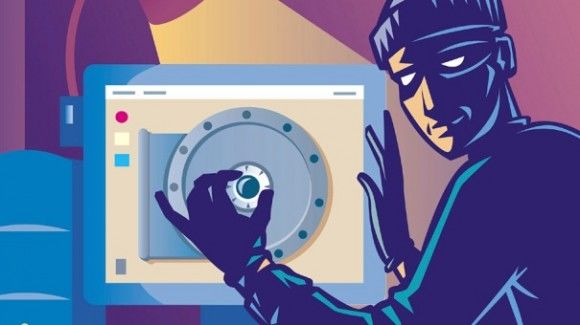
6 Ways You Can Protect Yourself from Hacking
Technology has infiltrated lives as never imagined, and the more you interact on the web and through mobile, the more at risk you are for some sort of data hacking intrusion. There are lots of products and services that will offer some sort of protection but it does feel like an ongoing game of whack-a-mole to keep everything under constant protection.
Luckily, in most cases, big companies dependent on Internet safety are doing solid work in giving you a relatively safe experience. Google, Apple, Amazon, Microsoft and even banks like Chase know their livelihoods depend on you feeling secure enough to share in the cloud and purchase care free. So, they spend tons of money battling the latest efforts by dastardly anarchists.
Even so, it's entirely possible you will fall victim someday to a hacking that will either crash your computer or steal your data.
Equifax revealed a giant cybersecurity breach compromised the personal information of as many as 143 million Americans – almost half the country. Cybercriminals now have access to sensitive information, including names, social security numbers, birth dates, addresses.
Although it can be overwhelming, there are preventative steps you can take to prevent hackers from being successful at using this information to compromise your identity.
1. Cover Your Webcam
Hackers love to snoop on people’s webcams — so they can infect them with malware. Their favorite tool is a remote access Trojan that takes over your computer, steals files, records your conversations, and can even activate your webcam to spy on you.
The most effective way to cover your camera is to use painter’s tape. Designed to stick evenly and be removed easily without damaging the target surface, this tape can be bought at any hardware store or paint supplies store.
Covering your webcam is no substitute for keeping your computer patched and running strong antivirus software. The best approach: cover your camera and use antivirus software.
2. Encrypt Your Hard Drive
If your hard drive is not protected by data encryption, a hacker can steal anything on it — including photos, financial documents, personal communications, and work data.
Data encryption is software that converts the information stored on your computer into code that is unreadable to hackers. Both major operating systems, Windows and Mac offer free, automatic encryption. Window’s version is BitLocker and Mac’s is FileVault.
3. Use multiple passwords.
Passwords provided by the software programs like Safari and Chrome are more secure than the ones you create, but if you use HYV3-8jbjD-83bK, you will never remember it, nor will I be able to find it when you need it. So, choose a series of unobvious number and letter combinations that have private meaning only to you. Switch periodically and share them with your wife. Also use password management software which lets you store multiple passwords in encrypted form so you don’t have to remember them. You can access all your passwords using one master.
4. Protect Your Home Wi-Fi Network
Your system comes with a default username and password that’s the same for every unit. Change the settings immediately because they are favorite targets for hackers to access your wireless security system. Never fail to install the updates. At the same time, buy a top-quality router. The same drill applies change the default login and password before installing, and regularly update the firmware.
Secure your Wi-Fi network with unique login credentials that are difficult to guess. Use WPA2 network encryption and a firewall.
5. Only respond to those you know or can identify.
Most of the unwanted e-mail gets caught in the filters, but some doesn't. The good news is that it's easy to verify someone through multiple channels these days. If someone you don't know sends you an email, a simple Google and LinkedIn search will usually verify if they have a reason to communicate with you. And you never ever open attachments you don't expect or from people you don't know. There is no joke they can send you that is worth being exposed to a virus.
6. Be more cautious in sharing.
It is difficult to keep everything safe, so be careful about what you actually share electronically. When it comes to financial information, use specific credit cards backed by companies that you know will support you if there is an issue. Use reputable sites and limit your exposure. “Never store or communicate anything electronically that you wouldn't be willing to share with everybody!" It's truly the only way to get peace of mind since no matter how much you try to prevent it, you still may get hacked. Just make sure you mitigate the risk so you can happily enjoy the rewards of modern technology.
Here are some tips from USA.gov:
- Secure your social security number (SSN). Don’t carry your social security card in your wallet or write your number on your checks.
- Don’t respond to unsolicited requests for personal information (your name, birthdate, social security number, or bank account number) by phone, mail, or online.
- Watch out for “shoulder surfers.” Shield your keypad when typing your passwords on computers and at ATMs.
- Collect your mail promptly. Ask the post office to put your mail on hold when you are away from home for several days.
- Pay attention to your billing cycles. If bills or financial statements are late, contact the sender.
- Review your receipts and compare them with account statements. Search for unauthorized transactions.
- Shred receipts, credit offers, account statements, and expired cards, to prevent “dumpster divers” from getting your personal information.
- Store personal information in a safe place at home and at work.
- Order your credit report once a year and review it to see if it includes accounts that you did not open.

 English
English Arabic
Arabic


